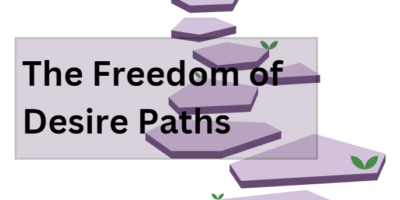Hopefully, you’ve started hearing back from some employers for interviews! If you haven’t, don’t give up yet—patience does wonders for us all.
In the meantime, it never hurts to mentally prepare yourself for interviews, especially if this is your first time going through the JobMine process.
In preparation for your interview make sure you’re clean, well-groomed, and dressed nicely. Not only does this show your interviewer that you respect them, but this will inadvertently boost your confidence. I also find that being dolled up reminds me to maintain good posture—or at the very least, better posture than my normal slouching. This helps you ease your nerves, too, and also conveys to the interviewer that you are professional and energetic. To the ladies, I personally like adding a splash of colour to my clothes by either wearing a not-too-bright shirt or blazer, or by accenting my outfit with a silk scarf.
Practice your handshake on your friends and family—it’s one of the main contributors to the interviewer’s first impression of you. A limp handshake gives the impression that you lack confidence and are more pessimistic. Similarly, keeping your arm close to your body and bending at the elbow conveys a sense of insecurity. A death-grip represents aggression and the need to dominate. The classic “firm” handshake—just the right amount of grip, vigour, and duration—indicates assertion and just the right amount of self-confidence. Another very important factor to keep in mind is maintaining eye contact with the interviewer during the handshake—this suggests sincerity.
Take care to remember your interviewer’s name! You have access to this precious information, courtesy of JobMine. Imagine meeting someone for the first time, and they just remembered your name. You probably felt more respected and appreciated than if they had referred to you as “Miss” or “Sir.” In fact, Dale Carnegie, author of the famous book How to Win Friends and Influence People, wrote that “[…] A person’s name is to that person the sweetest and most important sound in any language.” As you wrap up the interview, address the interviewer by their name one last time to leave a lasting, positive impression as well.
During the interview, be conscious of your own body language as well as that of the interviewer. Ensure your body is “open.” The easiest way to do this is to keep your arms away from the front of your chest so that you don’t cross them—that makes you appear standoffish. When you deem appropriate, mimic or mirror your interviewer (e.g., in body language, gestures, tone of voice). For example, if the interviewer has their right leg crossed over their left leg, cross your left leg over your right leg. Mimicry can happen subconsciously, but a subtle amount gives the interviewer the impression that you are more likeable, trustworthy, and empathetic. However, if you go overboard, you can be seen as downright creepy or incompetent.
As for answering interview questions, I have my own process of doing so. I think of answering them like I would an essay question. First, I begin with my “thesis statement”, which is the direct answer to the interviewer’s question. Then, I provide the body component, which is typically more details in the form of an example of when I displayed a particular technical or soft skill. Finally, I reinforce my answer by restating my thesis statement.
Remember that you are not compelled to respond to the interviewer immediately after they have posed their question. It gives you some time to thoughtfully reflect on your past experiences and reduces the impression that you’re simply repeating a canned response that you’ve rehearsed in your head or aloud a dozen times. It also projects a sense of your own self-value—like hearing your response is worth the extra wait. This strategy is great if you’re thrown a curveball of a question.
Another strategy to help you in the process of answering questions is to “parrot” some parts of the interviewer’s question back to them to confirm your understanding of the question. This is called “reflective listening”, which is a two-step process. First, you listen and try to fully understand what the interviewer is saying. Then, you paraphrase the important parts of the question before you actually answer it in order to confirm your understanding and interpretation of the question. This shows the interviewer that you have listened to what they had said and have purposefully processed it. Reflective listening is an extremely important life skill in general, but it can save you and your future coworkers from misunderstandings in the workplace.
Finally, be optimistic with a touch of enthusiasm and passion in your responses. Even if you have to answer the dreaded “What is your greatest weakness?” question, put a positive spin to it. Issues or problems are bound to arrive in the workplace, but complaining about them is not the best way to approach them. Instead, employers want to see that you can choose to see the bright side of a dark situation and focus your energy on resolving it, rather than being pessimistic, which can fuel the fire.
As much as I hope these suggestions will help you during the interview process, make your own observations and come to your own conclusions about what helps you interview more effectively. Every job position, interviewer, and company culture is different, so certain behaviours may prove to be more effective in some situations than in others.
Be yourself, (try to) have fun, and enjoy the experience! Best of luck!




Leave a Reply